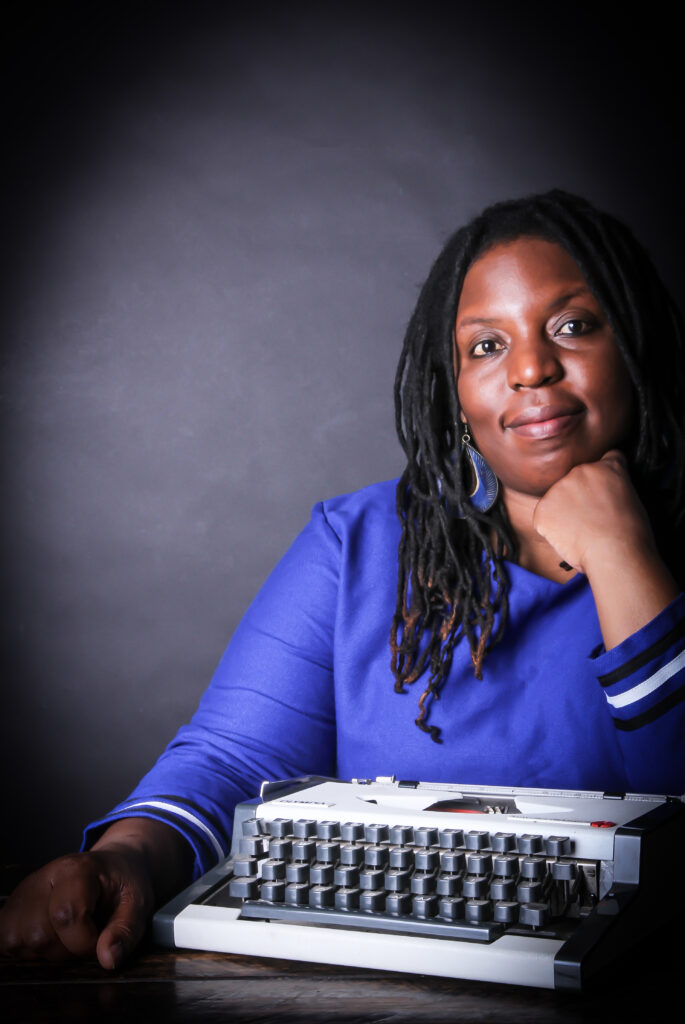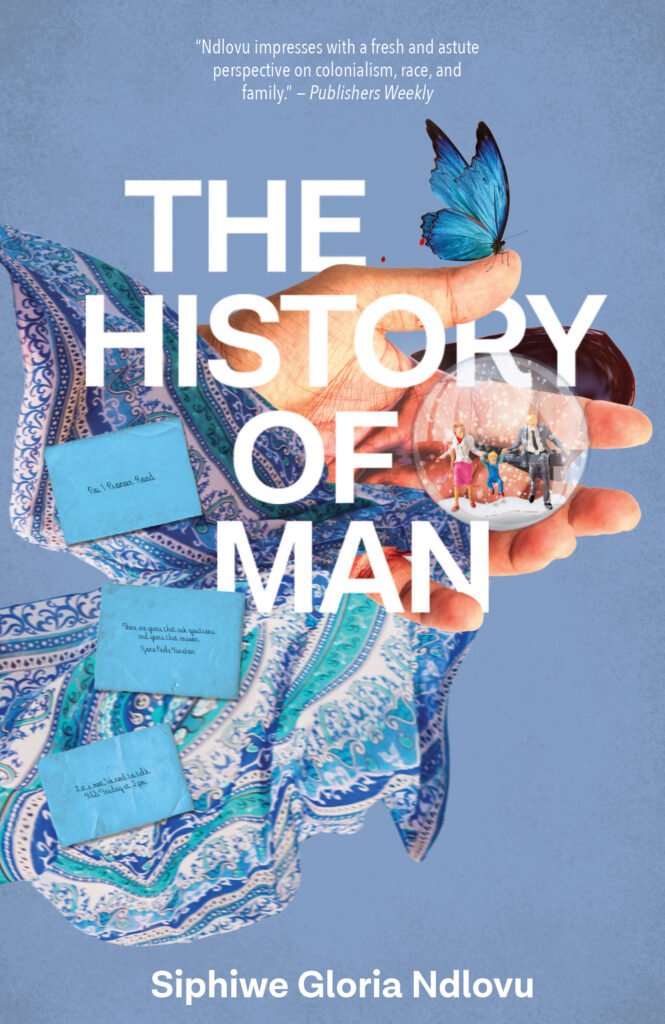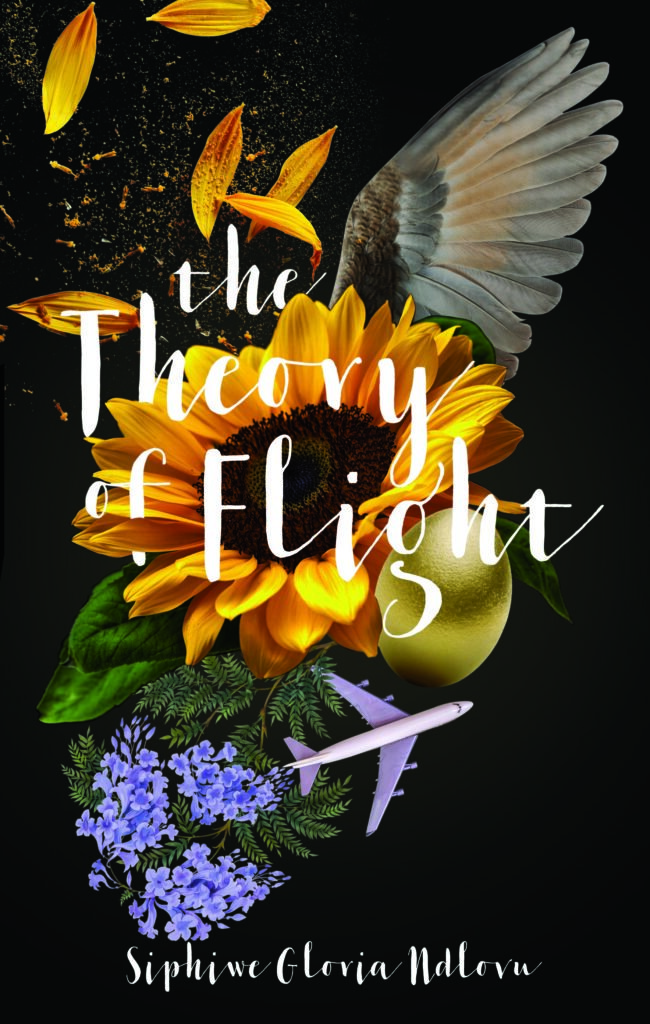Ndlovu ’00 Awarded Windham-Campbell Literature Prize

Siphiwe Gloria Ndlovu ’00 recently received the prestigious Windham-Campbell Prize, administered by the Beinecke Rare Book & Manuscript Library at Yale University.
Winners of the prize receive $165,000. The prize is a “global English-language award that calls attention to literary achievement and provides writers with the opportunity to focus on their work independent of financial concerns.”
The Writing, Literature and Publishing major’s debut novel, The Theory of Flight (2018), received a starred review from Publishers Weekly, as well as praise from Bustle, The Rupture, and Full Stop Magazine. The South African release of the book was awarded the Barry Ronge Fiction Prize. Her second novel, The History of Man (2020), was included on best-of lists from Buzzfeed and Brittle Paper, and has been featured twice in The New York Times.
Currently residing in Bulawayo, Zimbabwe, Ndlovu answered questions from Emerson Today about winning the award, her work, Emerson College, and more.
Q: Siphiwe means ‘we were given’ and Ndlovu is a Zulu clan name that means elephant. How do you think your personality traits compare to the meaning of your name?
Ndlovu: What a great question.
It is very difficult not to try to make something of yourself and your life when your family gives you a first name like mine, so I think my first name has made me an irredeemable dreamer – I am perpetually striving for the seemingly impossible.
In terms of my last name, elephants tend to be family-oriented, as am I. They care about the good of their communities, so do I. They are strong and somewhat unpredictable, so am I. I’d like to think I have the assured grace of an elephant, but I probably don’t.
Q: What did you think when you learned you had won the Windham-Campbell Prize?
Ndlovu: I don’t know that I could think anything coherent in that moment. It was like winning the lottery – one you didn’t know you had entered. It felt like one of those too-good dreams that you desperately want to be true, but there is a part of you that keeps saying, this is not real, this is a dream – that is what it felt like… in reverse… I was awake and there was a part of me that kept saying this is real, this is not a dream… and I just couldn’t believe it.

Q: LitHub described you as a writer, filmmaker, and academic. How would you describe yourself?
Ndlovu: I am someone who loves stories – hearing them, reading them, watching them, dreaming them up and writing them. I am also someone who readily and happily gives herself over to her imagination.
Q: Why did you want to write The Theory of Flight?
Ndlovu: In 2007, I suddenly lost someone who I was very close to and The Theory of Flight began as a meditation on that loss. At the same time, my country, Zimbabwe, was in a political and economic tailspin and in many ways the country seemed not only to have lost its direction, but it was haemorrhaging thousands of people daily to the ‘diaspora’ and was, therefore, losing its own people. I wanted to make sense of both my personal loss and the country’s loss and over time the two stories began to converge and intertwine.
Q: Why did you want to write The History of Man?
Ndlovu: I love history – I love investigating the ways that the past bleeds into the present. I am fascinated by what we inherit from the past, what we cannot help but carry on, the lessons we should but don’t learn. The Theory of Flight is in many ways an examination of the postcolonial moment and The History of Man is a deep exploration of the colonial moment. The country that I depict in The Theory of Flight is in many ways a country that was created in The History of Man – certain forms of power, oppression, violence have been passed on even as politicians give beautiful speeches about change. Independence is often an idea and not a reality. Some things change, but most stay the same… and yet, at the heart of it all, are people, people willing to hope, dream, and transcend their given circumstances and that is where the beauty of life lies.

Q: Who and what influences your writing?
Ndlovu: My writing is influenced by many things – my family, other writers and filmmakers, the state of the world, the state of my country, music, but what has the biggest impact on my creativity is Bulawayo, the city where I was born and raised. I just love this city and its history, its chaos, its shifting identity, its resilient people. I have been shaped by this city. Bulawayo – the City of Kings – is at the heart of the series of interconnected novels that began with The Theory of Flight. It is my aim, through the series, to tell the history of a city, a country, a world from the vantage point of a particular place.
Q: What are you working on now?
Ndlovu: My third novel, The Quality of Mercy, will be out in southern Africa in September 2022 and in the USA in 2023. The novel acts as a bridge between the first two novels and depicts a country’s transition from a colony to an independent country. While the three novels will be part of the series, they also act as a trilogy. I am also working on adapting The Theory of Flight for the screen, which I am very excited about.
Q: If you were interviewing yourself, what would you ask?
Ndlovu: Why does every novel you write mention condensed milk? Because it really is the greatest invention.
Q: How did Emerson help you professionally and personally?
Ndlovu: From a very young age, I wanted to be a writer, but I didn’t know that you could actually major in Creative Writing. When I was applying to college, I saw Creative Writing listed as a choice and I started dreaming of being a professional writer. Emerson gave me a beautiful beginning. I remember trying out every type of writing I could – fiction, nonfiction, drama. My love for film was actually sparked by a screenwriting class that I took in my junior year. Most importantly, Emerson not only helped me hone my creativity, it also helped me discover my critical-thinking skills – thanks to professors like Maria Koundoura.
Categories